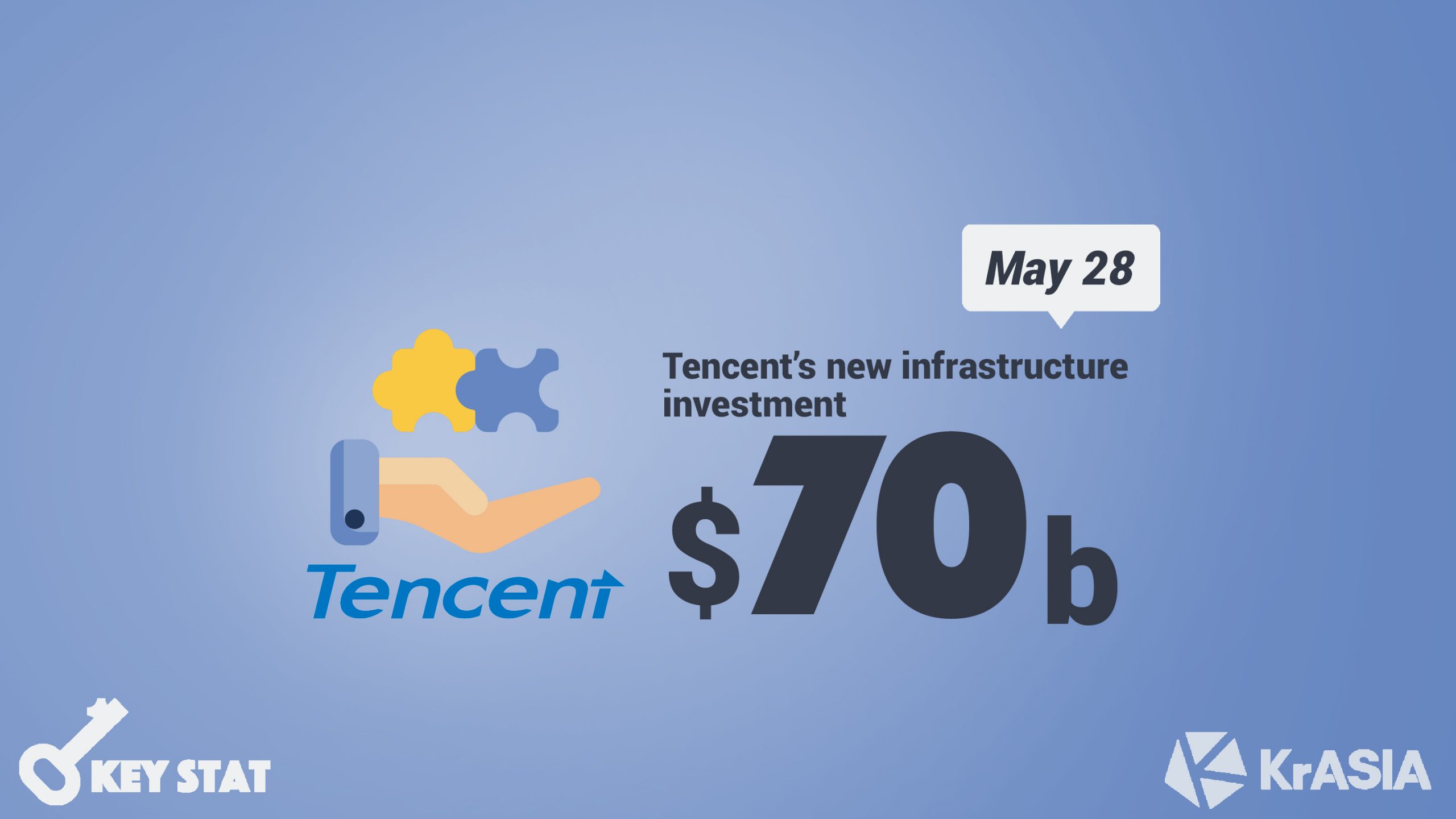Chinese internet giants are scrambling to unveil in succession billion worth of investments that echo with the “New Infrastructure” stimulus project the country introduced earlier this week at its annual Two Sessions parliamentary meetings.
Gaming and social giant Tencent (HKEX: 0700) said Tuesday on its official social media account that it would devote RMB 500 billion (USD 70 billion) over the next five years to “new infrastructure” including cloud computing, artificial intelligence, blockchain, data centers, internet of things, and others.
Tencent’s statement followed moves from other tech giants to embrace China’s national directive for a more technologically advanced economy. Search engine and AI developer Baidu (NASDAQ: BIDU) announced a series of smart city and self-driving vehicle joint projects with local municipal governments since March. E-commerce giant Alibaba (NYSE: BABA; HKEX: 9988) pledged to invest USD 28 billion into its cloud computing business in the next three years.
Cloud service has been under the spotlight recently, as enterprises learn the importance of optimizing their efficiency and reducing costs from the COVID-19 pandemic.
Since its first appearance in the Shenzhen-based company’s earnings report in the fourth quarter of 2015, Tencent Cloud has expanded its market share. Now it’s the second-largest cloud service provider in China after Alibaba.
Tencent Cloud claimed to have earned a USD 2.38 billion revenue in 2019, according to its press release, while Alibaba Cloud bagged USD 3.36 billion in the fiscal year of 2019, representing respectively 4.5% and 6.5% of their yearly revenue.
Alibaba’s major rival in e-commerce, JD.com (NASDAQ: JD), also declared its deployment in cloud service, in the wake of rising market demand, at the end of April through a partnership with the US content-delivery-network services provider Cloudflare.
As the COVID-19 epidemic fades, China included the term “new infrastructure” into this year’s government work plan, for the first time since it was introduced in 2018’s Central Economic Work Conference. The term refers to a broad technological and industrial upgrade to increase Chinese self-sufficiency in leading technology areas.
Haitong Securities predicted that China’s new infrastructure would receive RMB 3 trillion (USD 420 billion) in investment in 2020 alone, rising to RMB 10 trillion (USD 1.4 trillion) in the next five years, 36Kr reported.
A number of industries would benefit from the initiative including seven main sectors: 5G base stations, big data centers, industrial internet, artificial intelligence, new energy vehicle charging infrastructure, and intercity high-speed rail network.
